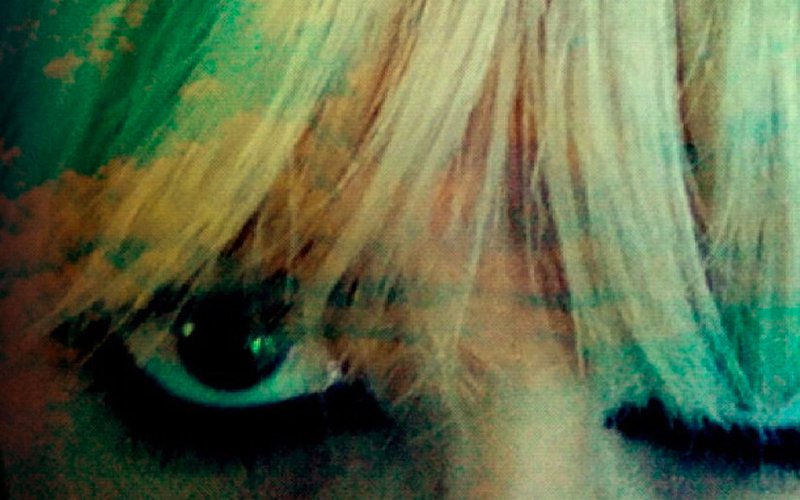
With Rewind, KEXP digs out beloved albums, giving them another look on the anniversary of its release (or in this case, the label's anniversary). In coordination with our Sub Pop 30 count-up, KEXP writer Dusty Henry reflects on Dum Dum Girls 2012 EP, End Of Daze.
Mine Tonight
Recently I told my therapist about my fear of eternal damnation. I thought it might surprise or worry him. And maybe I wanted that; for someone to be scared for me. But he was unphased. In fact, he said it was common. Even he could relate as he told me a story of watching a cartoon retelling of Cain and Abel appearing on television when he was a child, how it shook him to his core to see an animated figure kill his own brother. It was an oddly bonding moment, to hear someone else say, “That’s some seriously frightening shit” (I’m paraphrasing). I told him about hearing stories of demons from adults in power as a child and how enticing it was to hear about something so forbidden and evil, only to lay in my bed at night terrified they’d come for me. A childhood fear that weaves its way into your subconscious, growing like a weed and tangled in your own roots so you can never undo it despite how your thinking may change.
“Satan on my lip,” Dee Dee of Dum Dum Girls sings after seven foreboding pounds of a bass drum. “Paralyzed by his wicked kiss."
Dee Dee sounds more assured about her damnation on “Mine Tonight” than anyone I’ve come across. Even when she sings to an anonymous someone to guide her out, it sounds like she doesn’t believe that. Some sort of death is coming for her, a death she says she knows she cannot cheat. A shaky bass guitar gives her the only footing she seems to have, stuck in a perptual grind before finally opening up to a fury of buzzing, jangling guitars upon acceptance of her fate. Death is coming – and Hell with it.
I Got Nothing
“I feel nothing. I feel nothing. I feel nothing.”
She sings that phrase again and again, dropping her voice at the end of each repeated phrase while a monstrous bass line rumbles underneath. Finally she bursts out, “I’ve got nothing left to say from this day on.”
I’m struggling to find my own words. That’s a big problem when you’re a writer. It’s your currency, your lifeblood, your worth. I know it’s not my “worth,” okay, but it feels like it in certain moments. And when you words are out of reach, you can’t help but feel helpless. It’s a desire to want to resonate with anything. When you can feel your world crushing inside of you but can’t make a path for it to come out, you feel like you’ll combust. Or you feel nothing. You feel nothing. You feel nothing.

Trees and Flowers
Dee Dee seems to feel like she has no words either. So it makes sense that she next turns to someone else’s. She covers Strawberry Switchblade’s “Trees and Flowers.” It’s a beautiful song that talks a lot about hate. Hating trees, flowers, buildings – anything in purview.
“I feel so frightened. No one else seems frightened. Only me.”
A lot of us are scared to be alone, but maybe sometimes being scared is just feeling alone. I’m calmed when someone else tells me they’re afraid of hell, even though I don’t want them to share that awful feeling.
Dee Dee’s interpretation of this fear and loneliness drifts with the airy strums of a guitar. The tone of her instrument more invokes the purity of milk and honey than pits of sulfur. Her voice stretches until it seems she has no breath, pushing out that last phrase: “Only me.” The sun breaking through the window and greeting a gorgeous new day is stifling. Her hell is lovely, but her hell is lonely.
Lord Knows
Just when things seem at their lowest point, the sounds of a steady drumbeat in an empty room comes pounding in. But it is not a pummeling sound. The kit is restrained, fluttering as much as drums can really flutter, ringing out on the hi-hats and crackling on the snare. The drums will become a pulse, hardly moving from the rhythm necessary to keep the heart pumping.
“I want to live a pure life. I’d say that it’s about time.”
For the first time across the songs thus far, Dee Dee fantasizes about redemption. She scoffs at her idealization of ignorance. We’ve heard her explain her tortured soul, but we don’t really find out why it has to be this way until the chorus of “Lord Knows.”
“Oh boy, I can’t hurt you anymore. Lord knows, I hurt, my love.”
Suddenly all of this hurt and all of this damnation comes not from a sense of unfounded torture but a self-inflicted penance. She says she was blind to not see the “savior” in front of her, romanticizing and idealizing a partner she’s wronged in some way. She describes a sanctuary in his kiss, a time before Lucifer would offer the same. Earlier, she refers to the slow burning of Icarus; flying too close to the sun but instead of her wax wings melting in a hurry, she has to endure the flames moment by moment.
It’s an excruciating pain, to feel like you’re responsible for someone else’s hurt. You can damn yourself, but it never feels like enough. So you keep piling it on. You cover yourself in hate and loathing. You embrace being alone as a means to keep yourself from the sweet release of sharing hope and fear with anyone else. But Dee Dee says she’s ready to move on from this. She wants to live a pure life. And so do I. The bonds of self-loathing constrict until your skin turns purple. You have to let go before it kills you – even when the weight of your “sins” feels like too much.
Season In Hell
Finally, Dee Dee has her most vital revelation: hell isn’t a place, it’s a season. It’s a time in your life that you have to endure, to feel the weight of your actions or to process a feeling that you’ve eluded for too long.
“A confessions not a cure, there’s always darkness to endure on the path to be redeemed,” she sings.
The music reflects a new lightness. She’s approaching a dawn outside of the fiery pits, even if it’s still just out of reach. But she sees a path out and that’s something.
There’s a reason it’s called End of Daze instead of End of Dayz. Hell isn’t waiting or beckoning or consuming us. Damnation is a fleeting time. It’s a haze that coats your vision, obscuring the trees and flowers for pillars of salt. It’s not a message of outright optimism, but there’s hope within End of Daze. Hell is just a season. And the seasons will come and go.
In conjunction with the 20th anniversary of Death Cab For Cutie's 1998 session on KCMU, KEXP looks back on the band's remarkable debut which also came out two decades ago next month.
We take a second look at Eric's Trip's debut Love Tara, the drama behind the LP, and why it remains a timeless classic as we celebrate Sub Pop's 30th anniversary.
Fifteen years ago today, the Thermals released their bratty, cheaply-recorded, excellent debut album. The anxiety, lovesickness, and inexhaustible catchiness of More Parts Per Million make it a minor classic sometimes lost in the shuffle of great lo-fi rock albums.